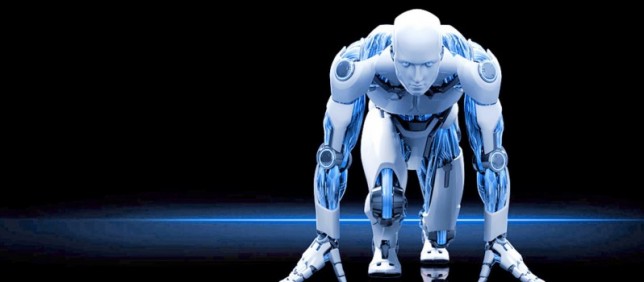Labor Watch
The Robot Revolution: Union-backed policies destroy human jobs, replacing people with intelligent machines


The Robot Revolution
Union-backed policies destroy human jobs, replacing people with intelligent machines [PDF here]
By Steven J. Allen and Alec Torres, Labor Watch, August 2015
Summary: Labor unions and their left-wing friends are imposing a host of laws and regulations that are dramatically raising the cost of hiring workers. Minimum wage laws, Obamacare requirements, and many other policies are causing businesses to rethink new hires. Even expensive robots and other forms of non-human labor begin to make sense to strapped companies. Who will suffer the most under the new regime? The least skilled and the poorest—the very persons who were supposedly going to benefit from the new laws and regulations created. Call it “the War on Jobs.”
New technology creates jobs. The invention of the lightbulb puts candle makers out of work and the invention of the automobile puts buggy-whip makers out of work, but more jobs are created in the new industries than were lost in the old ones.
Until now, perhaps. The nature of the U.S. economy is changing. To a greater degree than ever before, politicians and bureaucrats and activist groups are working to make it too expensive for businesses to hire people for many jobs.
Who will get those jobs? In many cases, robots.
Mechanical men
The term “robot” comes from the 1920 science fiction play (for Rossum’s Universal Robots), although the basic concept of a mechanical worker was not new. (For example, there’s the Tin Woodman, a human turned into a mechanical worker, in the Oz series beginning in 1900.) Pop culture has featured countless depictions of robots replacing humans, but in reality, robots were long limited to mindless, repetitive tasks such as certain work on assembly lines. The first ATM, which accepted deposits but didn’t give out money, was installed in New York City in 1961 and promptly rejected by customers. By the 1970s, cash-dispensing ATMs were being installed across the U.S., and robots began to be used in increasingly sophisticated ways.
Now, things are getting serious. A recent book, Rise of the Robots by Martin Ford, depicts the robot revolution that is upon us, with the use of robots expanding in ways that hardly anyone expected. Ben Schiller of Fast Company/fastcoexist.com wrote of Ford:
Surveying all the fields now being affected by automation, Ford makes a compelling case that fundamental shift from most tasks being performed by humans to one where most tasks are done by machines. That includes obvious things like moving boxes around a warehouse, but also many “higher skill” jobs as well, such as radiology and stock trading. And don’t kid yourself about your own importance: that list almost certainly includes your job. . . .
“It’s possible that at some future point, rapid technological innovations might shift the expectations of consumers about the likelihood and duration of unemployment, causing them to aggressively cut their spending,” he adds. “If such an event occurred, it’s easy to see how that could precipitate a downward economic spiral that would impact even those workers whose jobs are not directly susceptible.”
Among the jobs that could be taken soon by robots: flipping burgers. In 2013, Momentum Machines created Alpha, a robot that can make up to 360 hamburgers in an hour and pays for itself in a year. It shapes patties from ground beef, grills them, and makes burgers with onions, pickles, and tomatoes; it can customize burgers, making patties out of, say, one-third hamburger and two-thirds beefalo. [Click HERE for the rest of the article.]



